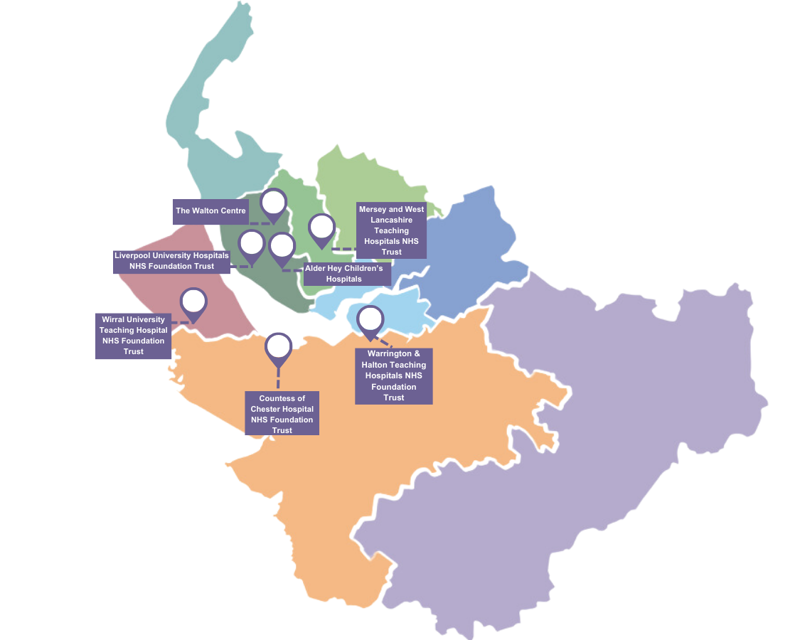Pathology Network
Pathology is the study of disease. It is the bridge between science and medicine. It underpins every aspect of patient care, from diagnostic testing and treatment advice to using cutting-edge genetic technologies and preventing disease.
The vision for the Cheshire and Merseyside Pathology Network is that everyone in Cheshire and Merseyside has the best possible health outcomes facilitated by effective and responsive pathology services.
In order to deliver our vision:
- We will deliver high quality, innovative, sustainable pathology services
- We will work together to ensure everyone in Cheshire and Merseyside can access the required tests, in the right place, at the right time
- We will remove unwarranted variation in order to provide standardised and efficient services

In Cheshire and Merseyside, we have four clinical workstreams that make up our Pathology Network. They each cover four key disciplines of pathology:
Pathology Target Operating Model
The NHS Long Term Plan outlines several national initiatives designed to improve clinical efficiency and safety. The aim is for regional collaboration in a networked service model to improve patient care by driving out unwarranted variation in pathology services and achieving critical mass to support specialist diagnostics so that patients have equal access to key tests and services are sustainable. We are working on developing our business case to agree and start implementing our detailed target operating model by 2025.
Services
The scope of the Network covers:
- All activity for patients registered with a GP in Cheshire and Merseyside, noting:
- Some diagnostics are delivered out of area
- The Network includes care delivered to patients out side of Cheshire and Merseyside through affiliated Trusts (incl. Isle of Man)
- Not all trusts are members of the network (ECT & MCHT)
- Highlighting performance challenges and providing support to respond to these.
The Network labs in Cheshire and Merseyside provide pathology results for:
- Eight A&E departments
- Ten critical/intensive care units
- Seven trauma departments, including a paediatric Major Trauma Centre (MTC) and three adult MTCs within the Liverpool Collaborative
- Five maternity units
- The regional burns unit
- The specialist cardiothoracic centre
- One specialist cancer centre
- 375 GP practices
-
Pathology updates
Read the latest Pathology news and updates
-
Pathology case studies
Read the latest Pathology case studies and patient information
To contact the Cheshire and Merseyside Pathology Network, please email cmpathology.admin@nhs.net